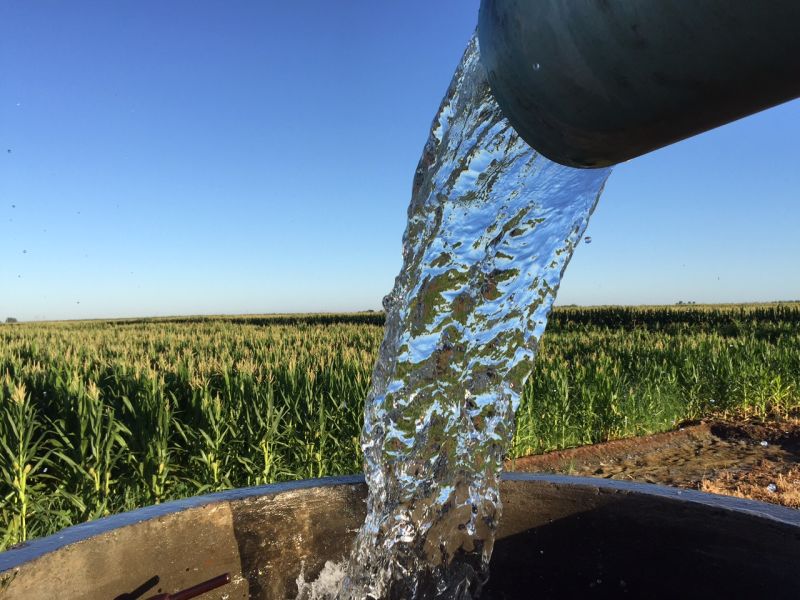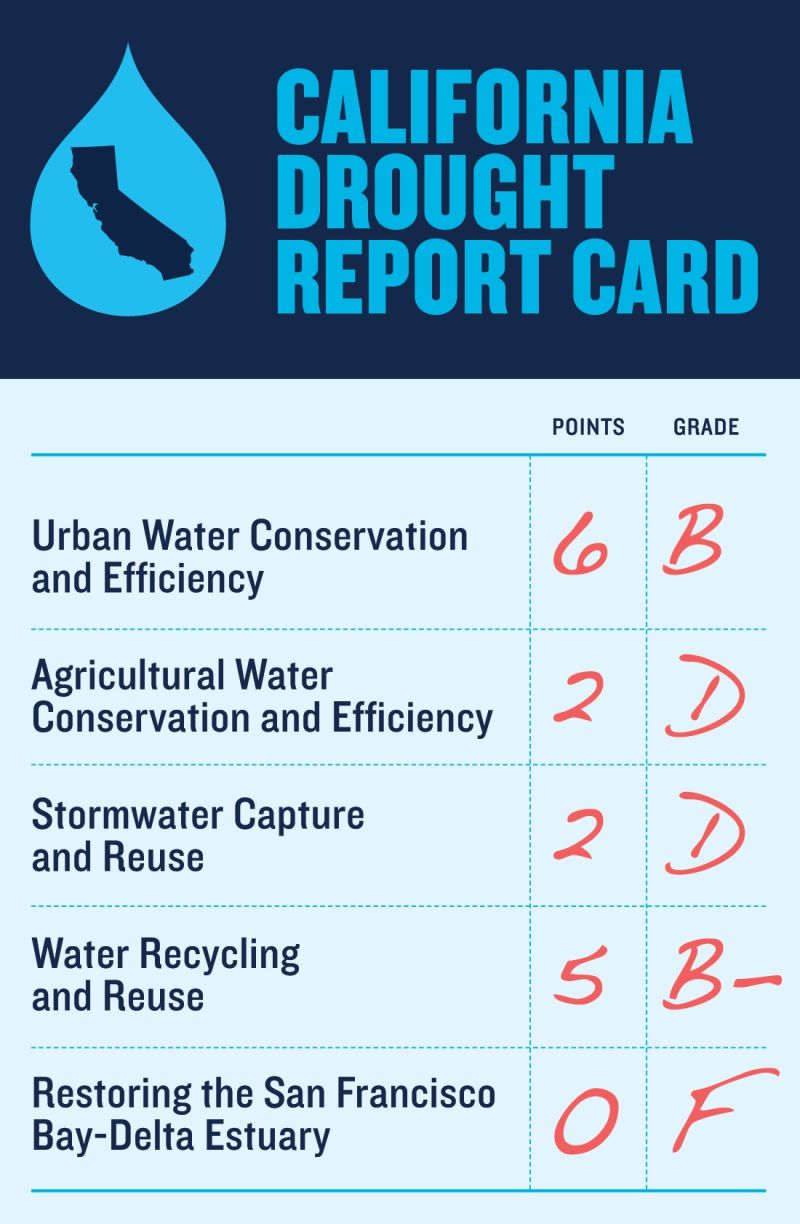A “report card” for California’s response to the four-year drought is being greeted with some consternation by state water officials.
“One always prefers ‘atta-boys’ to kicks in the pants,” responds Felicia Marcus, one of the state’s top water regulators.
On Monday, the Natural Resources Defense Council issued a report grading efforts to cope with the current dry times and gird the state against future droughts. It was a report card that, if handed down by your fifth-grade teacher, you probably wouldn’t be eager to show your parents.
The report issued D grades for conservation in the farm belt and for capturing and recycling stormwater runoff, and an F for its efforts thus far to restore and protect the Sacramento-San Joaquin Delta, widely considered the keystone in California’s water system.
“I think it comes down to setting clear goals and putting regulations in place to ensure those goals are met,” says Kate Poole, a senior attorney for NRDC, “and then providing the funding and assistance to meet those goals.”

